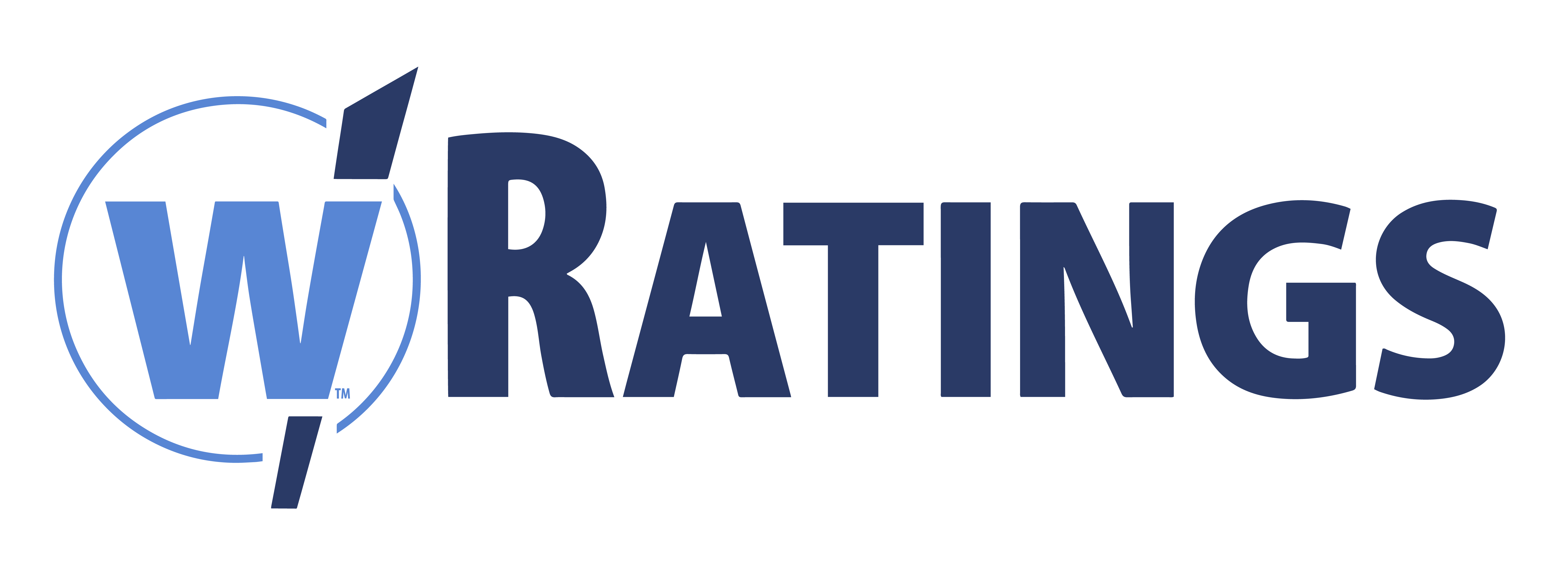Michael Jordan: Defense Wins Championships . . . Or Maybe Not
Gary A Williams
June 2, 2025
Michael Jordan: Defense Wins Championships . . . Or Maybe Not
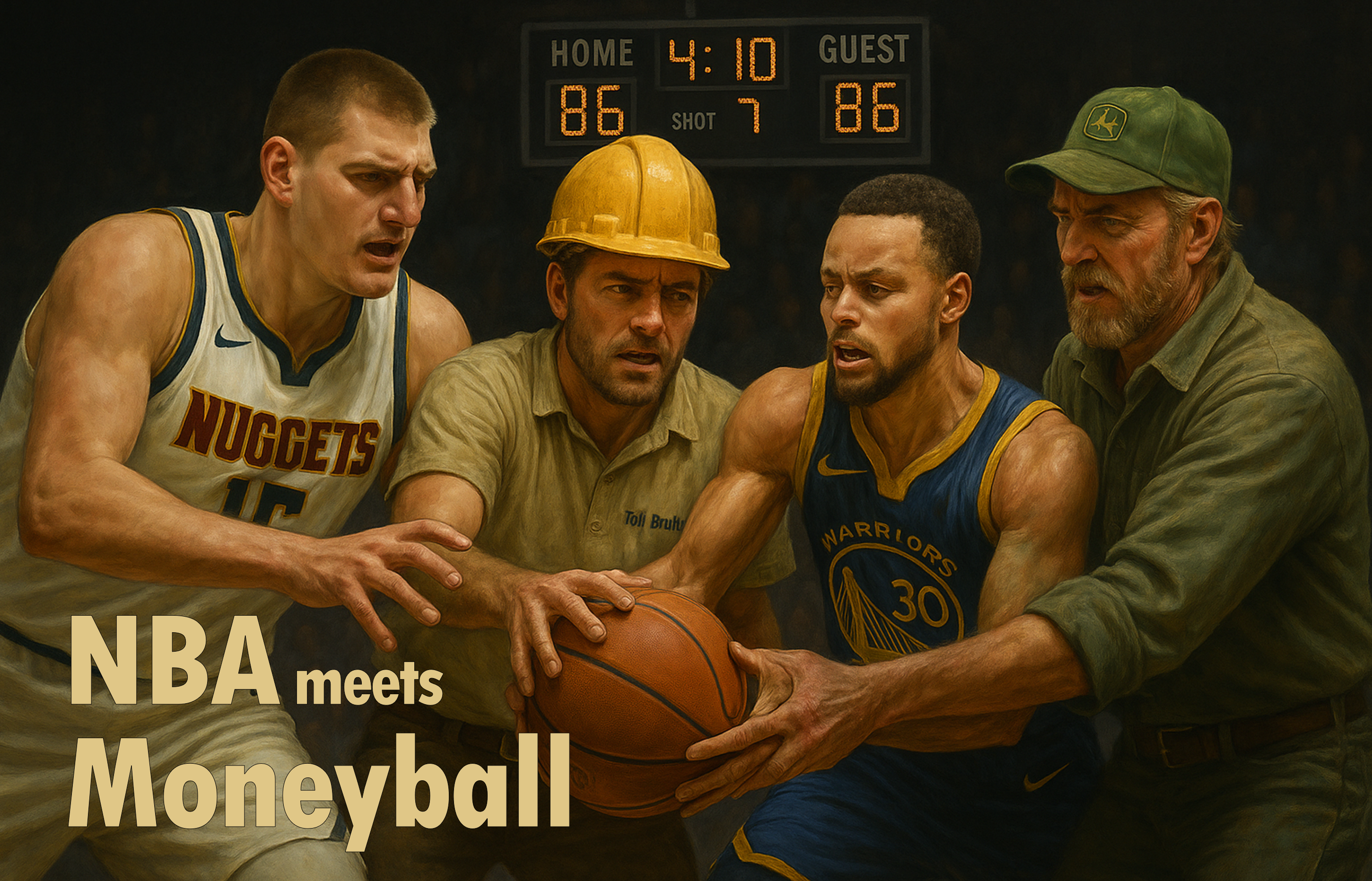
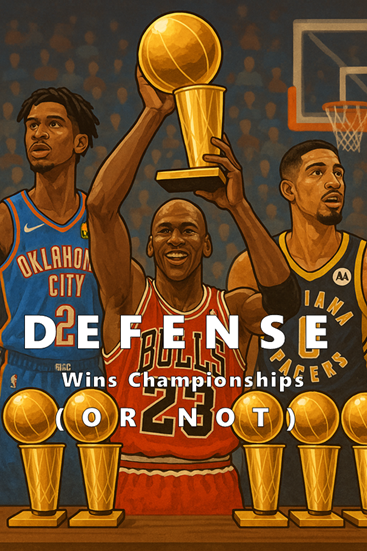
All trademarks are properties of their respective owners.
When Michael Jordan won his first NBA title in 1991, he proclaimed “Defense wins championships.” With his fourth in 1996, he restated it again. And in 1998 when the Chicago Bulls completed the “three-peat” title, he declared “Defense wins championships; that’s more evident than ever.”
The 2025 NBA Championship series is set: Oklahoma City Thunder versus the Indiana Pacers. But it was nearly OKC versus the New York Knicks, who surprised most of us by upending the Boston Celtics and nearly pulled it off again with the Pacers. How did the Knicks do it? Tough defense.
Does defense win championships in any sport? Athletes, coaches, and journalists from the NFL, NHL, MLB, and college basketball have all made the same proclamation. But is it actually true? Over the course of a season, you need either a stellar offense or a stellar defense in order to win a title. But in the playoffs, a better defense does tilt the outcome in your favor.
While we don’t have the exact equivalents of defense and offense in business, our Moneyball analytics track why customers buy from both a rational (functional) and emotional perspective. Companies don’t win “titles” per se, but they do win customers that are willing to pay more for goods/services than their rivals. In turn, this creates more profitable growth which shows up in their gross profits.
To generate superior customer willingness to pay (WTP) and gross profit growth, superior rational and emotional scores are key. But emotional scores carry more weight.
My goal here is to not tell you how to think about sports or business, but rather how to think about them using a new framework. In decision-making, we often give too much credit to what is readily apparent, when the real answers are often concealed but clearly exist.
Why Championships Favor Defense
Successful NBA teams typically have a top-10 offense and defense, but not always. This year’s Thunder rank #4 and #2 in team O-DPM and D-DPM respectively, but the Pacers rank #10 and #19. Some of the best regular season teams didn’t even make it out of the first playoff round (looking at you, Boston Celtics).
A few key reasons contribute to why defense becomes more critical after the regular season. First is randomness. Defensive play is less subject to the way a ball bounces, so lesser games means more opportunity for that lucky bounce to occur. The reverse is called regression to the mean, which increases over more games played. Decrease the number of games, and randomness – some may say luck – increases the likelihood a playoff team can pull off the upset.
The next is that referees are more likely to “swallow their whistle” in playoff games, and especially in clutch moments. This natural human default behavior is called omission bias. People view not taking an action as far less intrusive or harmful than acts of commission. NBA refs don’t want to be wrong. So letting players “play on” happens more often in playoff games, whether in the NBA, NFL, MLB, or NHL. Defensive fouls are less likely. This years’ Knicks almost pulled off the playoff upset with tough defense.
Lastly, we celebrate offense, and don’t really think about defense. This leaves us to underestimate the power of defense in the playoffs. Take a look at the top 10 players by offense and defense in the regular season, according to DARKO. Which names are more recognizable? Great defense remains hidden until suddenly it appears . . . like in clutch moments of a playoff game. As Michael Jordan says, “Defense wins championships.”
Looking at the top 10s, not a single Pacers player appears whereas 3 Thunder players do. Does that indicate the Thunder will win easily? Not so fast, as Lee Corso famously says. Randomness (luck!) and whistle swallowing may still impact the outcome.
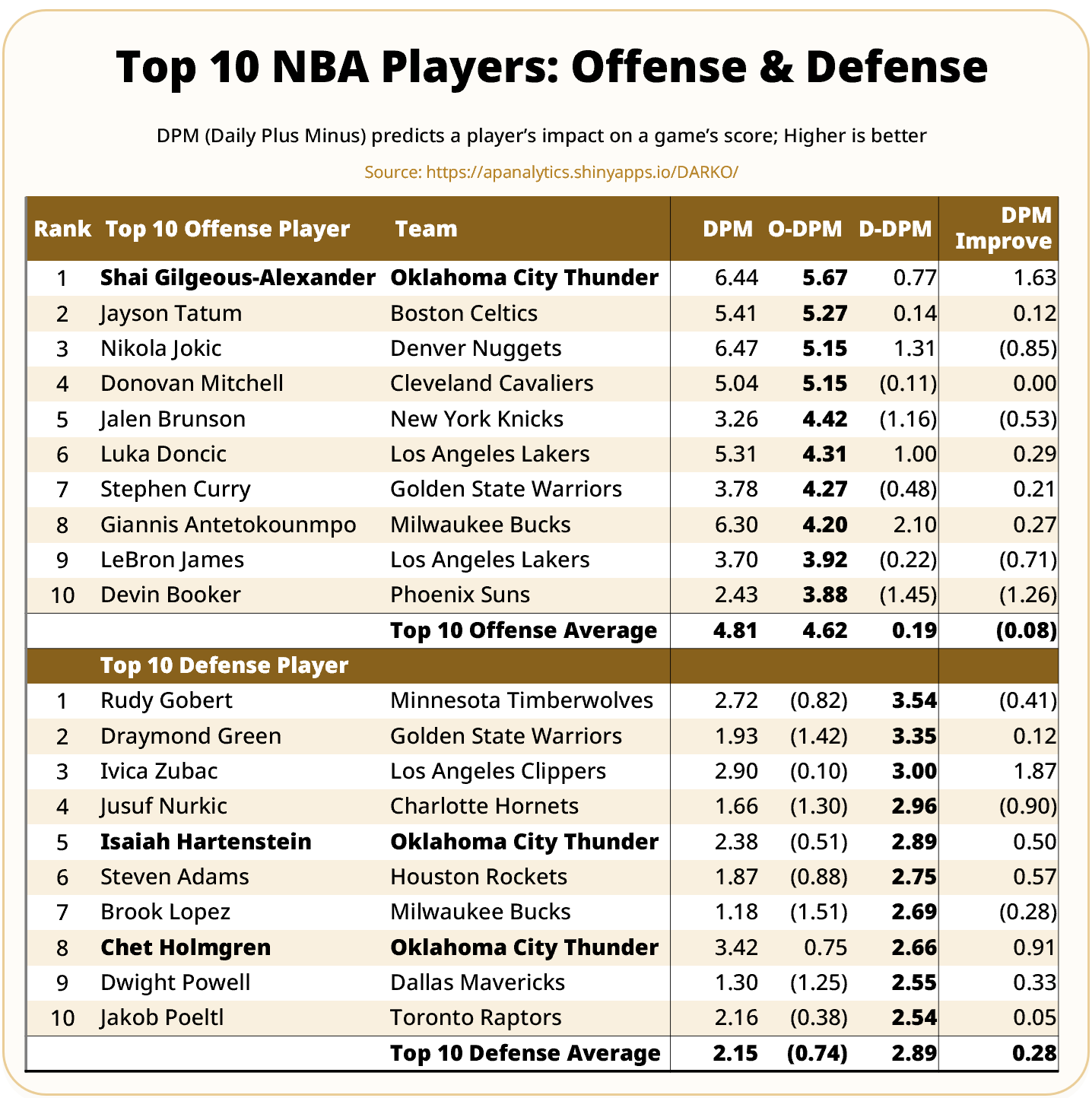
Why Customer Willingness to Pay Favors Emotions
In his 2016 letter to Amazon shareholders, CEO Jeff Bezos wrote, “A remarkable customer experience starts with heart, intuition, curiosity, play, guts, taste. You won’t find any of it in a survey.” While the first part of Jeff’s statement is accurate, innovative customer interviews can most certainly capture emotions.
Customers buy based on both rational logic and emotions, that infamous “head and gut.” Just like sports people overemphasize offense in their analysis, executives put far too much weight on the rational part of customer buying decisions. The hidden part of winning customers – found in emotions like trust, connection, flexibility – is the key to increasing their willingness to pay (WTP) and, ultimately, profitable sales growth. The internal phrase for WTP is pricing power. And the more, the better.
Based on 2025-Q1 data from the W-30 Index, correlation between companies better meeting customer expectations – measured via Value Gaps – with customer willingness to pay (WTP) is at -0.41. Decreasing the customer gap increases customer desire to pay more, so a negative correlation is preferred.
Breaking customer decisions into satisfaction gaps (rational logic) and emotional gaps, correlations are -0.35 and -0.44 respectively. Just like defense wins championships, delivering on emotions wins higher customers willingness to pay. Companies with more pricing power build stronger emotional bonds.
Numerous companies measure their Net Promoter Score, believing that an increase benefits their business. Yet, the correlation between NPS and WTP is -0.01, which is non-existent.
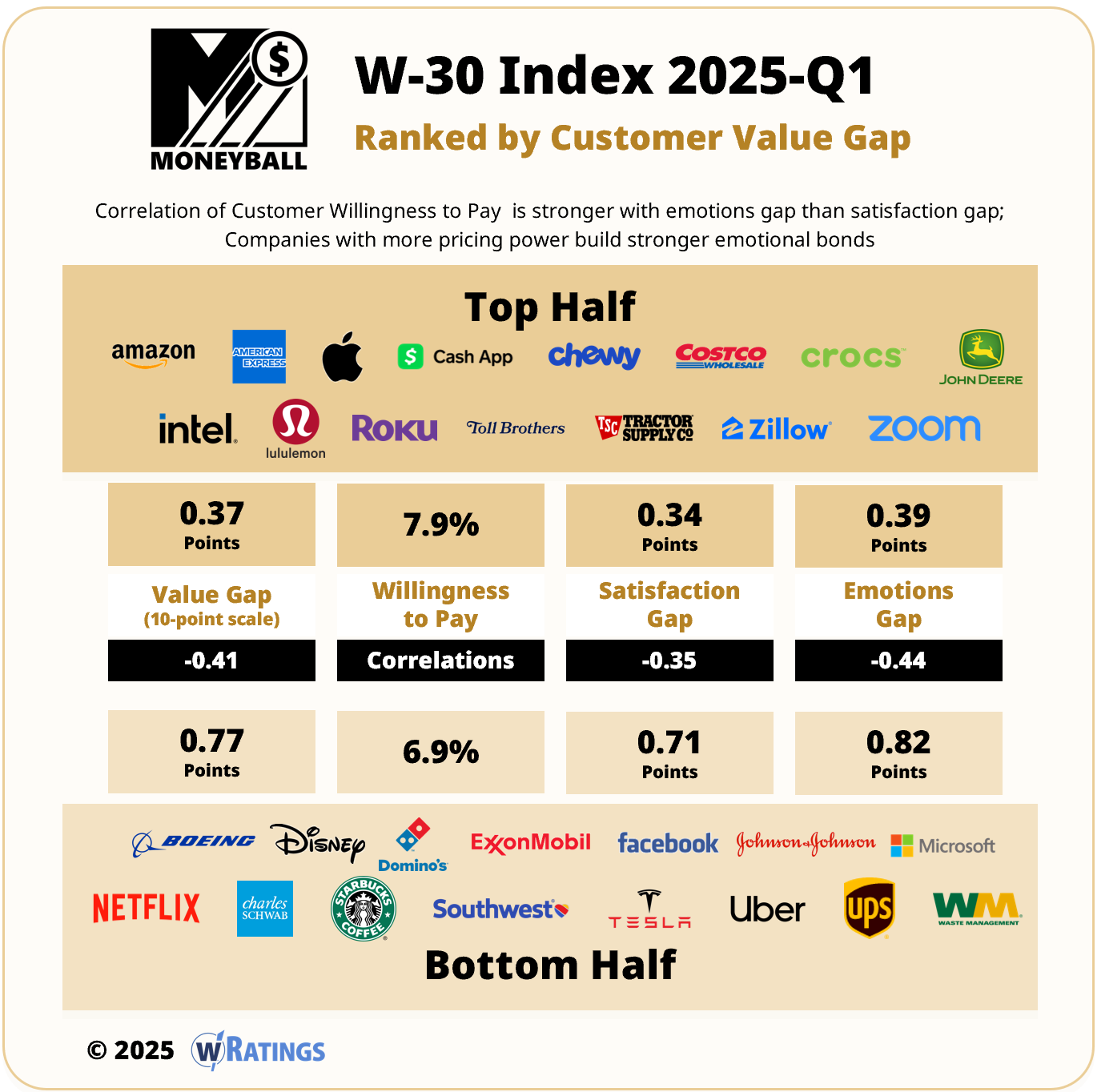
Why do executives often not use the power of emotions to generate more customer WTP? As Jeff Bezos said back in 2016, they don’t have visibility.
At a 2009 management conference, Bezos also talked about executive omission bias, similar to what we see with referee whistle swallowing. Bezos said, “People overfocus on errors of commission. Companies overemphasize how expensive failure’s going to be. The big cost that most companies incur is much harder to notice, and those are errors of omission.” Managers are so obsessed with avoiding actual errors that they often miss opportunities. They overfocus on rational logic, and miss the larger opportunity to increase customer WTP via emotions.
In the mid-2000s for a waste disposal company, we measured how many errors needed to occur before a customer would switch providers. The answer was three, but a caveat existed. Customers with less emotional bonding would switch after one error; Those with more would give them 4+ chances.
Just like defense is critical in those clutch moments to win playoff games, emotions give you that extra edge when things don’t always go as expected.
Why Customers Buy From You
Uncover the hidden part of customer decision-making: Emotions. Let the wRatings platform show you the analytics behind what your customers expect and are willing to pay for, and in turn, drive more profitable sales growth.
If you’d like access to our Moneyball analytics and benchmarking database, apply to become a wRatings Insider here.
